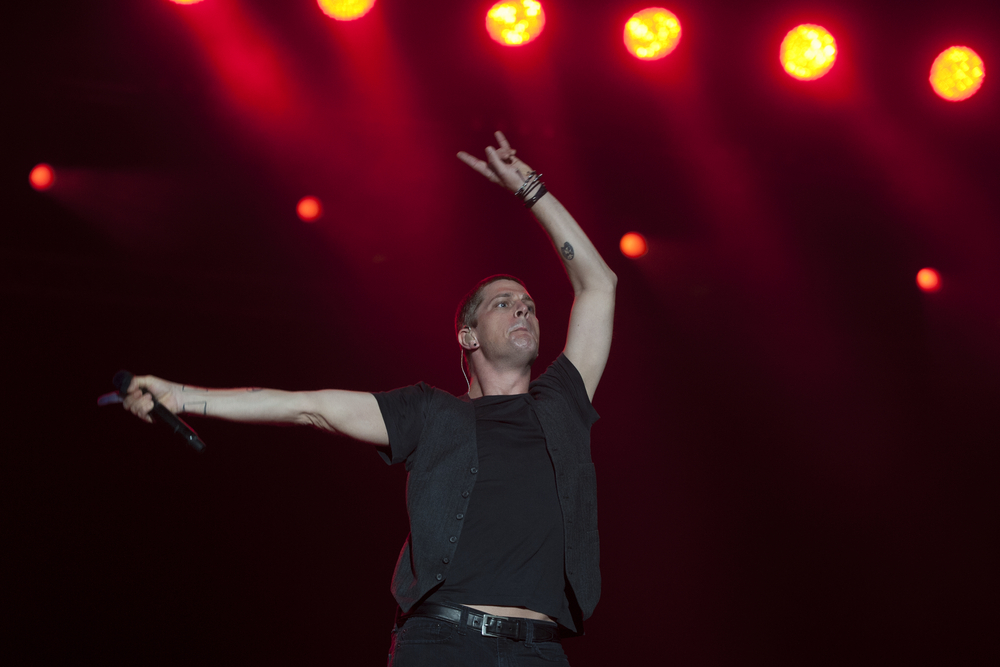
Matchbox 20 frontman Rob Thomas posted a profuse apology to Facebook on Sunday after making a racist on-stage comment linking Australian aboriginals and alcoholism.
The ill-advised joke came during the band’s performance last Saturday at Rod Laver Arena in Melbourne. Referring to his jet lag, Thomas told the crowd “I drink till I think I’m Australian. And then keep drinking till I’m a black Australian.” This statement was met with a chorus of groans and boos from the audience. After a video of the joke was posted by TMZ and went viral, Thomas insisted that he wasn’t trying to make a joke about race, but that he was “truly sorry” for his “ignorant” comment.
“I have seen people comment that after coming here for so long I should know that there is a connection between the Indigenous peoples of Australia and a stereotype involving drinking. Embarrassingly, I truly didn’t,” he wrote. “I didn’t know until TODAY that just the phrase ‘black Australian’ was racist all on its own. I sat in my room and I cried when I found out. Australia has been so good to me for so long that I’m embarrassed I don’t know more about the history and the culture.”
However, alcohol abuse does remain an issue among Indigenous Australian communities. Findings released last February by the Aboriginal Drug and Alcohol Council of South Australia show that Indigenous Australians in this region between ages 35 to 54 are six to eight times more likely to die than their peers, primarily due to alcohol abuse. Alcohol was also responsible for 30% of female suicides and 40% of male suicides among this population.
A separate research project, published in the Journal of Ethnicity and Substance Abuse, also cited alcohol abuse as a major issue among the population. Lead author Dr. Rama Jarayaj noted that Indigenous people in the Northern Territory consumed 16.9 liters of pure alcohol annually, compared to 10 liters consumed annually by the general population. She also explained that many people in this population were hesitant to engage in “white, western treatments” such as psychology and cognitive behavioral therapy because “some of them are illiterate, their education is primary school level and they can’t understand the techniques being used.”
